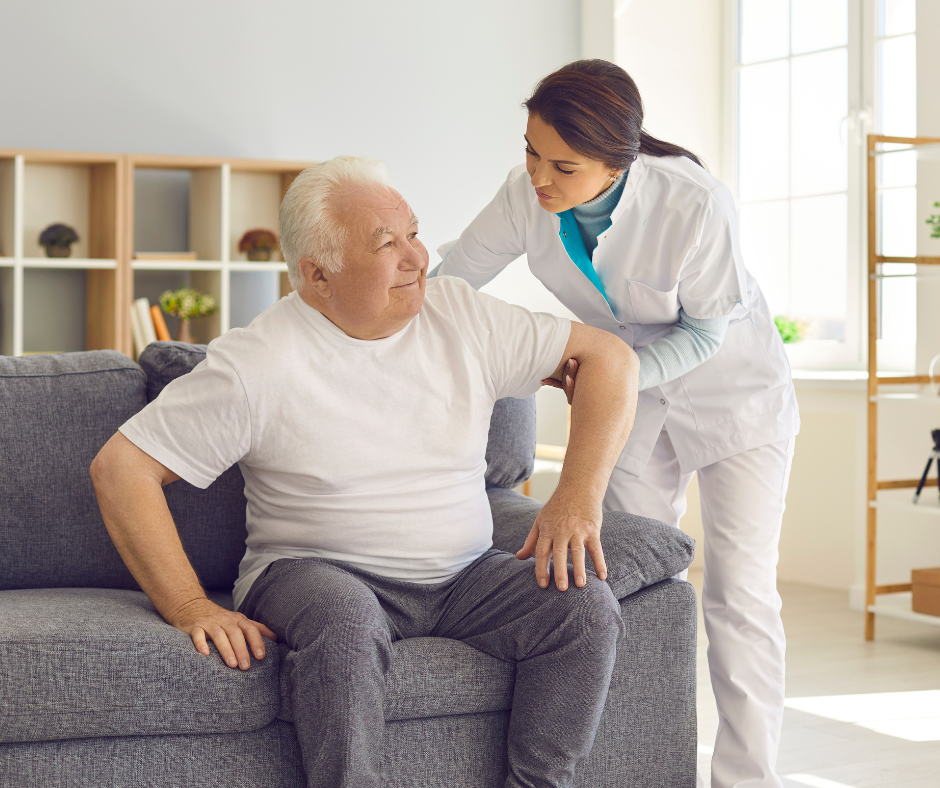The Difference Between Personal Care Aides and Home Health Aides

If you or a loved one needs support, it’s important to know the differences among a variety of home care workers. Keep reading to learn more about what duties personal care aides (PCAs) and home health aides (HHAs) perform, what qualifications they require, and how to choose which specialist suits your needs.
Personal Care Aides
When daily tasks become challenging for you or your senior loved one, a personal care aide can step in.
Main Duties
PCAs handle both household chores and personal care responsibilities. They might do cleaning, shopping, laundry, running errands, and meal prep. Additionally, they provide companionship and can accompany seniors to appointments, walks, and activities outside the home.
Training
Personal care aides usually don't have strict federal training requirements. Some states require training, but often, on-the-job training suffices. Employers may have their own training prerequisites.
Personal care aides don't administer medical care, so their training is less rigorous than that of home health aides. Remember, personal care aides don't deliver medical care. If medical attention is required, a personal care aide might not meet the necessary level of care.
Home Health Aides
For seniors needing daily medical care, home health aides are a suitable choice. They provide medical services and ensure seniors are well cared for at home.
Key Responsibilities
Unlike personal care aides, who offer comprehensive care, HHAs focus on health and safety. They help with grooming, bathing, and cooking, but typically not with errands or heavy cleaning.
Home health aides handle basic healthcare tasks like measuring vital signs, assisting with medical equipment, and administering medications. They can also help with artificial limbs, skincare, and specialized diets.
Training
In New York, home health aides are required to successfully complete a 75-hour training program approved by the Department of Health. These training programs are offered in various educational settings, such as high schools partnered with the Board of Cooperative Educational Services (BOCES), vocational-technical schools, nursing care facilities, community colleges, and certain home health agencies.
The training program curriculum covers a range of subjects, including effective communication and documentation skills, accurate reading and recording of vital signs, fundamental infection control protocols, proper body mechanics, maintaining a hygienic environment, emergency procedures, understanding patients' physical, emotional, and developmental characteristics, personal grooming and hygiene standards, secure techniques for patient transfers, the basics of normal range of motion, and patient positioning.
Personal Care Aide vs. Home Health Aide—Making the Right Choice
When deciding between personal care aides and home health aides for yourself or a loved one, consider care needs.
For seniors needing assistance with daily tasks but not medical care, a personal care aide is the best option. Meanwhile, a home health aide is appropriate for hands-on medical assistance.
Providers of both aide types often offer assessments before service begins. This helps determine the required care level accurately.
Remaining flexible can lead to the best caregiver fit. It's common to try multiple caregivers before finding the right match.
What Skills Should a Home Care Worker Excel At?
When choosing a home care worker, you should keep in mind the following skills, which are essential for the job:
Effective Communication
PCAs and HHAs employ robust communication abilities to fulfill their core responsibilities. This involves grasping patients' requirements, conveying crucial information to families, and updating nurses and physicians about patients' health statuses.
Furthermore, grasping directions from patients' families and critical medical guidance from doctors is essential for both PCAs and HHAs to offer proper care. Regular communication with patients, especially when they're away from their families, also fosters companionship.
Attention to Detail
Attention to detail is a key skill for HHAs and PCAs to discern signs of discomfort or an ailment in patients. They know when to administer care and remember vital particulars like dietary limitations.
Employing a blend of organizational methods and keen observation, home health aides and personal care aides guarantee suitable patient care. They also monitor patients vigilantly to promptly notify other healthcare personnel if any issues arise.
Compassion
Compassion and empathy characterize HHAs and PCAs. By actively listening to patients' needs and worries, practicing patience, and providing companionship, these caregivers forge strong patient relationships. HHAs and PCAs consistently strive to better understand their patients to devise the most effective assistance strategies.
Physical Endurance
Home health aides and personal care aides frequently perform physically demanding tasks on their feet, underscoring the need for physical stamina. Their workdays are often physically active, encompassing activities like running errands, repositioning patients, and conducting rounds in healthcare settings. A majority of their tasks require physical resilience.
Ethical Conduct
Home health aides and personal care aides need to be reliable and honest, ensuring that clients and their families can place their trust in them. Additionally, they should exhibit respect when assisting with intimate tasks like bathing clients.
At
Five Star Home Health Care Agency, all our personal care aides and home health aides excel at the aforementioned skills and possess the qualities needed to provide the most excellent care. We exclusively hire individuals with a genuine enthusiasm for providing service. Our candidates have undergone a comprehensive set of pre-employment screening procedures to ensure their skillfulness.
If you have questions/concerns, please do not hesitate to call us at
718-676-9977 or send us an online message using the form on our
Contact Us page. If you want to meet with us personally,
set up an appointment with us right away. If you know anyone who can benefit from our services, please
send us your referrals.
